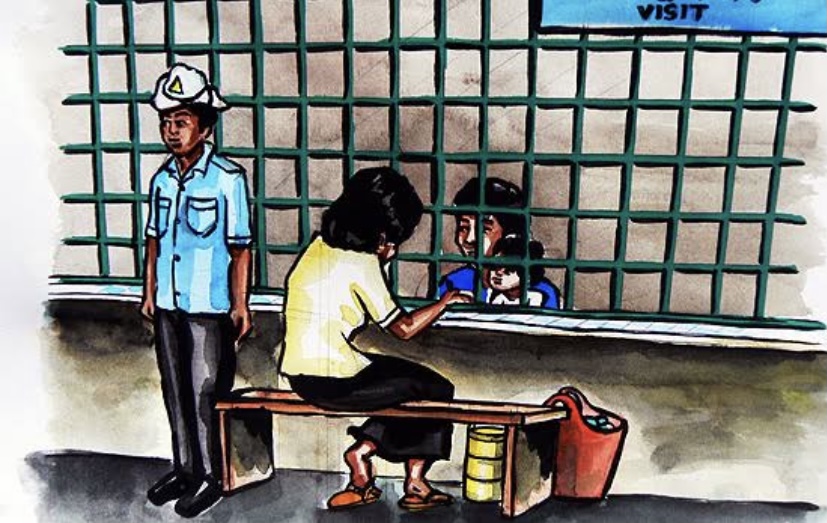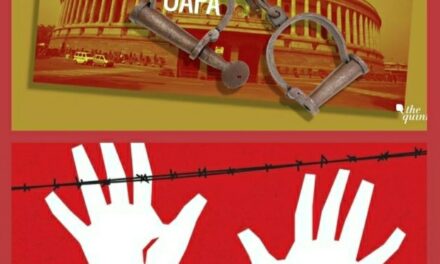Defining bail jurisprudence for women.


Kumar Kartikeya
The pillar of bail jurisprudence in India is mature, able-bodied, and male. Time in Indian jails means being exposed to the patriarchy of custodial institutions and a barbaric form of treatment that has received no judicial reflection in the jurisprudence of bail. It has no sympathy for women, girls, the aged, or the ill. It does not recognize the state’s vicarious liability for institutional and daily manifestations of abuse, humiliation, and injustice towards women and transgender undertrials. Custodial rape, breastfeeding, or childbirth are not regarded as the barbaric, dehumanizing, or degrading treatment of female inmates. Similarly, the interests of the children of imprisoned parents are not prioritized in bail jurisprudence. Even in a pandemic, the deplorable condition of women’s jails, which is much greater than that in male prisons, is not often used as a justification for the liberation of women undertrials.
A bail order on 31st of March 2021, in State Vs. Suman Kumari, the additional sessions court judge Vishal Gogne rendered a significant break from bail jurisprudence by emphasizing the interests of minors whose parents are imprisoned. In this dowry murder case, the court noted that the convicted sister-in-law of the deceased victim was also the mother of a 21-month-old child. The mother, who had been imprisoned since December 9, 2020, had requested bail. On April 2, the court granted bail to the mother, stating that incarcerating mothers lead to “de facto custody of their newborn kids.” This was considered a significant abuse of Article 37 of the United Nations Convention on the Rights of the Child(1989). As well as a breach of Section 3 of the Juvenile Justice (Care and Protection of Children) Act, 2015, which requires the child’s best interests as fundamental and encourages “incarceration of the child as a last resort”.
Furthermore, the court emphasizes that children in “de facto imprisonment” must not be subjected to harsher custodial circumstances than children in violation of the law or children in need of treatment and security. Besides that, the court requests “empathy” as a “ground for bail” in order to shed “light on the often-forgotten victims of imprisonment, including the offspring of incarcerated parents.” The legal attention on the plight of children of imprisoned parents shows the hypocrisy of such “arbitrary imprisonment.”
Although the National Human Rights Commission of India issued guidelines in 2020 for state governments to free women, prisoners, including pregnant women; most governments have not approved the release of pregnant women or mothers with children. Amid protests from women’s rights campaigners and scholars, the Delhi High Court’s high-powered committee did not release all pregnant women or mothers with children in 2020. Their conditions for parole are dependent on the nature of the crime, the length of the term, ethnicity, and so on.
Disregarding the Disaster Management Act of 2005 which designates overcrowded jails as hotspots of mass pandemic and requires that prevention, evacuation, or relief be read in conjunction with Section 61 of the DMA. According to Section 61 of the Disaster Management Act, the state is required to compensate and assist disaster victims and that “no prejudice on the basis of sex, caste, community, descent, or religion shall be tolerated.” The catastrophe legislation defines the specific needs of incarcerated women and people from other marginalized communities. Certainly, the catastrophe legislation must be read in conjunction with prison laws, ensuring that all mothers, children, and transgender inmates be deemed, the most vulnerable groups, in need of urgent rescue, relief, and rehabilitation.
Public interest litigation has been brought in the Delhi High Court to release prisoners on temporary bail amid accusations that 117 prisoners and 14 jail personnel were infected as of April 17 in Tihar Jail, where the current prison population is nearly double its intended capacity. In the Sabarmati Central Jail, 55 prisoners and four jail staff members have caught the virus, while 198 prisoners caught the virus in Maharashtra’s jails. In Patiala, 44 female prisoners went down with the virus, while Gurdaspur Jail has registered 200 cases of Covid-19. Pregnant mothers and children who are unable to get vaccinations are now incarcerated as the vitriolic epidemic spreads in our jails. In this health emergency, we can only hope that our courts will free women and transgender inmates and provide them with the care they need, to live.
Covid-19 has shown us that by failing to even provide conditional bail to women on remand, including mothers and pregnant women, the aged and seriously ill, and victims of prison abuse, the criminal justice system is associated with a gut-wrenching kind of brutality. The judiciary has yet to acknowledge that our jails are too overcrowded and gender-specific.
It is now that we must ask, why has the decolonization of the Indian criminal justice system not yet been a prominent discussion. It is the right time to abolish the tradition of imprisoning women, minors, and sexual minorities in prisons, regardless of the crime they committed, as this would be the very first move towards decolonizing the justice system. Non-custodial policies are now being used to replace the tradition of incarcerating women awaiting trial. As a fundamental aspect of decolonizing Indian law, our courts must enforce the law’s constitutional pursuit for humanity and bring down its past commitment to custodial brutality.
Author Kumar Kartikeya is a student of law and co-founder of The Policy Observer. He tweets from @kumarkartikeyad.
(The opinions expressed in this publication are those of the author/s. They do not purport to reflect the opinions or views of The Policy Observer or our members.)
Related Articles
Privatization of Liquor: A Look Into the Loopholes of The Policy
The division of the city was done into 32 zones and licenses were based on the same. In June 2021, the tenders were issued for the application of L-7Z and L-7V licenses. The office of commission of the excise government of the national capital issued terms and conditions for the grant of licenses.
The Information Technology Rules, 2021- A Constitutional Scrutiny
A law prescribing the procedure for depriving a person of his ‘personal liberty has to meet the requirements of Article 19 and if not shall be struck down as arbitrary under Article 14. Liberties and restrictions should run parallel to each other. One overpowering the other would distort the fair working of the constitutional machinery.
Gubernatorial impropriety
The office of the Governor is slowly and steadily being converted into an extended political branch of the central government. The scale and scope this time around are more than ever before! Are we ready for the implications this will have on National Unity and the dent it will cause to the constitutional principles of Cooperative Federalism, Constitutional Morality, and Democracy?








